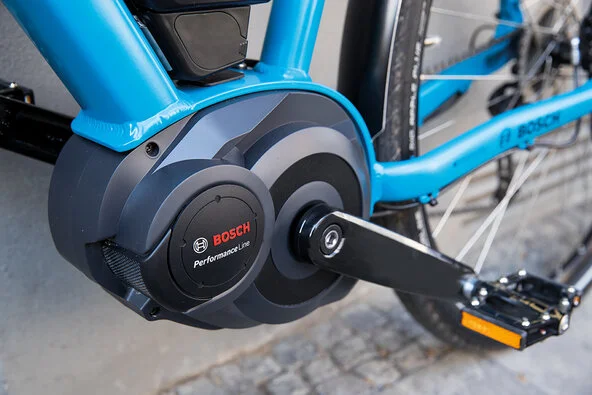New York City Secures $25 Million for E-Bike Charging Stations
In recent years, the issue of fires resulting from faulty electric mobility batteries has plagued densely populated urban cities across the US. New York City, the nation’s most populous city, has experienced over 100 fires and 13 deaths in 2023 alone. Compounding the danger, fires ignited by lithium-ion battery packs are notoriously difficult to extinguish and often spread uncontrollably. Recognizing the urgency of this safety concern, steps are being taken to mitigate risks and protect e-bike riders.
Regulation and Funding: UL Certification and Charging Stations Advancing Safety Measures and Infrastructure
To address the situation, New York City recently passed a law mandating UL certification for all e-bikes sold, a crucial step in the right direction. However, this regulation does not directly address the tens, if not hundreds of thousands, of existing e-bikes on the streets, many of which lack any safety certification. In response, city officials have announced that $25 million in federal government funding will be allocated to construct e-bike charging stations throughout the city.
Enhanced Safety and Convenience: Charging Stations for Delivery Personnel Subheading: Protecting Riders and Streamlining Charging Processes
Mayor Eric Adams, in a news conference on June 25, 2023, highlighted the significance of these charging stations in providing a safe solution for delivery personnel who rely on electric bicycles. By establishing dedicated charging stations, residents will no longer need to charge their e-bikes in potentially hazardous home environments, especially during overnight hours. This initiative not only promotes rider safety but also streamlines the charging process, ensuring efficient operation for those dependent on their e-bikes for livelihood.
Infrastructure Development: Expanding Charging Station Network
Joined by senators Chuck Schumer and Kirsten Gillibrand, Mayor Adams outlined plans to install up to 173 charging and storage stations at 53 outdoor locations using the allocated funds. Additionally, the city aims to secure additional funding to further expand the charging station network, specifically catering to the needs of delivery personnel. Ultimately, New York City aspires to install a total of 327 charging stations, fostering a comprehensive and accessible charging infrastructure.
Strengthened Enforcement: Addressing Battery-Related Complaints Subheading: Ensuring Timely Response and Mitigating Risks
In conjunction with the infrastructure development and funding announcement, fire officials have been directed to intensify their efforts in responding to complaints concerning e-bike batteries. Previously allowed three days to address these concerns, fire officials must now act within 12 hours. In 2023 alone, the city has already issued nearly 500 citations related to e-bike batteries, imposing fines and penalties ranging from $1,000 to $5,000. Recognizing the impact on delivery personnel, efforts will be made to strike a balance between enforcement and support.
Need of ebikes in New York City
The need for e-bikes in New York City is evident as the city faces the challenges of congested streets, limited parking options, and increasing pollution. E-bikes offer a practical and efficient solution for urban transportation, allowing riders to maneuver through traffic and reach their destinations quickly. With their zero emissions and reduced reliance on fossil fuels, e-bikes contribute to a cleaner and greener environment, aligning with the city’s sustainability goals and the desire to improve air quality. Furthermore, e-bikes provide accessible transportation options for individuals of all ages and physical abilities, bridging the gaps in existing public transit networks and ensuring that transportation is inclusive and accessible to everyone, regardless of their circumstances.
In addition to their benefits for individual riders, e-bikes play a vital role in supporting local businesses and delivery services. With the rise of e-commerce, delivery personnel rely on efficient and timely transportation to meet the demands of online shopping. E-bikes offer a nimble and agile solution for deliveries, reducing traffic congestion and enabling faster and more sustainable deliveries. Restaurants and food delivery services, in particular, benefit from the speed and reliability of e-bikes, ensuring that customers receive their orders promptly and fresh. By integrating e-bikes into their operations, local businesses can enhance their efficiency, improve customer satisfaction, and contribute to a thriving urban economy.
As the US embraces the electric bicycle revolution, ensuring the safety and empowerment of e-bike riders takes center stage. New York City’s initiatives to regulate e-bike batteries through UL certification and develop a robust network of charging stations exemplify a proactive approach. By prioritizing safety, streamlining charging processes, and strengthening enforcement, the future of e-bikes in the US holds great promise. As infrastructure continues to evolve and safety measures become more stringent, e-bikes will undoubtedly become a trusted and integral mode of transportation, fostering a cleaner, more efficient, and safer urban environment for all.







